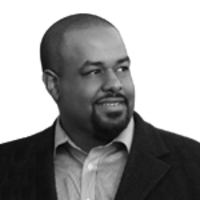
1. You’ve been at the forefront of the immigration debate, bringing the faith community to the table. Why were people of faith, particularly conservatives, hesitant on immigration reform before, and why are they engaged now?
Three reasons: First, evangelicals have had a genuine biblical conversion to how God wants us to respond to “the stranger” and especially when Jesus says how we treat them is how we treat him. Second, evangelicals have had a relational conversion as immigrant families, including the undocumented, have become part of their communities and churches. When you worship with people you get to know them. Third, all our churches are experiencing most of their growth from immigrants—from the Catholics to the Southern Baptists—and “the strangers” are integral to the future of the church in America. My new book explains how we are helping the political leaders to do the right thing by providing both moral courage and political cover for them; and how this differs so much from the bitter budget debates for example. We explore how politics loses and finds the common good.
2. You just wrote a new book, On God’s Side. What’s it about? What are the key differences between this work and your previous ones, including God’s Politics?
“Our life together can be better” is the opening line of the book and expresses the hunger that many people feel today. I wrote the book on a three month sabbatical during the election year, with a discipline not to engage the news cycle but only to watch it at night after long days of reading, reflection, and writing. I saw how polarized, vitriolic, and depressing our political debate has become and realized that we had lost something very important—an ancient idea called “the common good.” The spiritual foundation for the common good is “to love your neighbor as yourself” and is found in all our faith traditions. But the common good is also in our secular democratic traditions and could be something we could gather around—common ground for the common good; as is now happening on immigration reform for example. I apply the ethic of the common good to the economy, the role of government, the renewal of democracy, the reality of globalization, and even how to do conflict resolution with our enemies. But the common good isn’t just about politics but our personal decisions that we make every day in our workplaces, congregations, communities, and our households where we live our lives as parents and kids, and those closest to us. How do we treat our immediate neighbors, our poor neighbors, our undocumented neighbors, our Muslim neighbors, our gay neighbors? And I explain why the kind of Jesus Christians believe in will determine the kind of Christians they are going to be. This book is more biblical and theological than God’s Politics but then applies the practice of the common good to the biggest questions we face today and, especially, shows where we can find hope.
3. On the issue of gun violence, the faith community’s support seems more uneven than on immigration reform. Why do you think this is?
This will take more time. But when parents bury their children instead of the other way around, and pastors bury teenagers instead of their elder congregants, something has gone terribly wrong in a society. And I believe both parents and pastors will make a critical difference on this issue going forward. If democracy is to be respected, we need to find the common sense gun laws that will begin to make a difference in the violence; and also deal with the cultural and mental health treatment issues that also must be addressed. Eighty-six people are dying each day from gun violence including eight children; and 3,000 people since Newtown. That is unacceptable and can be changed.
4. What are the most important things we can do to change the political culture in Washington?
The checks have replaced all the balances in our public life today and until we challenge the power of money over politics we will falter in our continuing efforts to renew and expand democracy. On God’s Side lays out a “covenant for civility” which will be vital to a healthier political discourse. And to restore trust in the economy, we must replace our broken social contracts with a new social covenant that stresses individual dignity, the common good, and stewardship.
5. I understand between advocacy, writing, and speaking, you also moonlight as a Little League baseball coach. How’s the season starting off? Any highlights you’d like to share?
Well, it’s tough in the middle of a book tour—we’re doing 18 cities and 40 events. But I am home from the tour every weekend for our Little League games! My vocation as a Dad with two young sons and my role as their Little League baseball coach affects my perspective on events and issues as much as my roles as public theologian and justice advocate. In fact, my book is dedicated to my two boys, Luke and Jack, who help me remember “what is important and what is not.”






